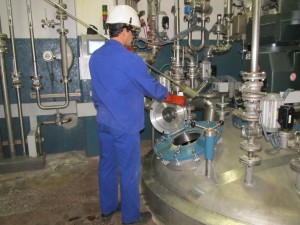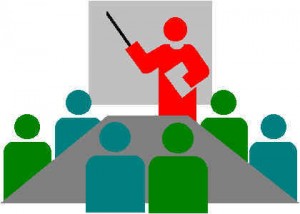Work-related musculoskeletal disorders are a group of painful disorders of muscles, tendons, joints and nerves. All parts of the body can be affected, although upper limb and back are the most common areas. At the European level, musculoskeletal diseases are the most common occupational diseases.
The participatory ergonomics (PE) programmes are an adequate alternative to reduce the prevalence of the MSDs in all type of companies. They are a cheap alternative, since they do not use many resources, and they have demonstrated efficiency, because PE reduces the number of workers affected by MSDs and the costs related with these illnesses.
PE is an interactive process inwhich differentactors are involved. The foundation of PE interventions consists on entailing all the different departments of a company, including the workers, in the process of diagnosis and solution-finding concerning ergonomics in the workplace.
A characteristic feature of most PE interventions is the formation of one “team” or committee, typically made up of employees or their representatives, managers, ergonomists, health and safety personnel. Once formed, teams usually receive basic training from an expert, most often an ergonomist, to become familiar with ergonomic principles. Once this foundation is in place, the group uses its newly developed knowledge to make improvements in the workplace.
Although the PE programmes are mainly based on the PE groups, the previous experience in this field show us the importance of the professionals on Occupational Health and Safety (OHS) when they adopt the role of facilitator of the PE group (group adviser), but despite this, the professionals on OHS do not have the adequate capacities to adopt the role properly, due to an inexistent training about these themes.
Training needs in participatory ergonomics
The current formative contents about PE do not entail the importance of the skills and personal capacities of OHS professionals when a PE programme is carried out in a company. The European OHS professionals need to learn more about the specific discipline on abilities and personal skills necessary to guide a PE programme, as well as, training about their role as the change manager that provide to the companies a new vision and strategies in order to adopt the ergonomics and PE as the solution of the MSDs problem at workplace. PE-ABLE project will cover these mentioned needs through an e-learning innovate course consisting of the adequate contents on ergonomics, PE and personal skills, abilities and capacities to guide a PE programmes and to adopt the role of the change manager or innovation manager.
Then, the OHS professionals promoting PE programmes must get these characteristics:
- Knowledge on ergonomics and especially participatory ergonomics.
- Skills and abilities on leadership, dynamization, moderation, motivation, etc. in order to head all the components of the group.
Our proposal: the PE-ABLE project
PE-ABLE project is necessary to cover these lacks of training, improving the capacities of the European OHS professionals and providing new skills for emergent activities that this type of workers should deploy in their daily work.
Therefore, PE-ABLE main objective is the development of a training course with innovate contents related to ergonomics and PE, and especially on skills and abilities to coordinate the PE group in order to improve the knowledge and capacities of the European workers.




